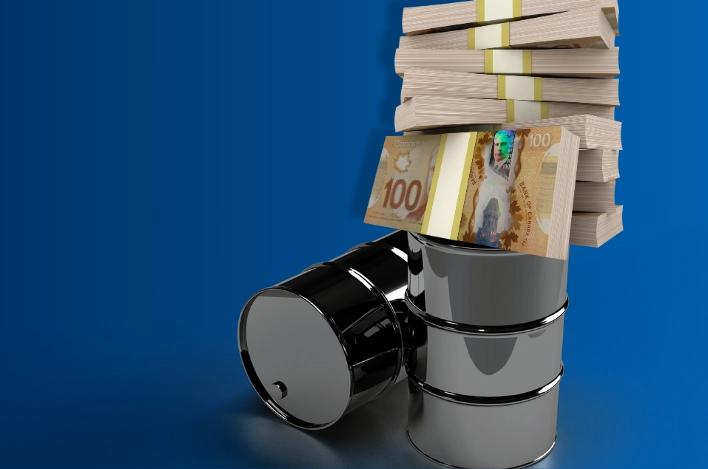Does the price of oil affect the Canadian Dollar?
The relationship between oil prices and the Canadian dollar is not solely determined by supply and demand dynamics.

We might cringe when we see the price at the pumps, but is there a silver lining? Can higher gas prices improve Canadians' purchasing power?
The Canadian dollar, often referred to as the "loonie," is closely tied to the price of oil due to Canada's significant role as an oil-producing nation. This relationship is not just a simple cause-and-effect scenario but rather a complex interplay of economic, geopolitical, and market forces. In this article, we will explore the intricate relationship between the price of oil and the value of the Canadian dollar.
Canada is one of the world's largest oil producers and exporters, with vast reserves of crude oil in Alberta's oil sands and other regions. As a result, the Canadian economy is highly dependent on the oil industry. When oil prices rise, it typically has a positive impact on Canada's economic performance, leading to increased revenue and investment in the oil sector.
What is the direct impact of oil prices on the Loonie?
One of the most immediate and apparent effects of changes in oil prices on the Canadian dollar is their correlation. When oil prices go up, the Canadian dollar often strengthens in tandem. This relationship can be attributed to several factors:
1. Increased Export Revenue: Higher oil prices mean that Canada earns more from oil exports, which can lead to a trade surplus. This surplus can increase demand for the Canadian dollar as foreign buyers purchase it to pay for Canadian oil.
2. Economic Growth: A thriving oil sector tends to boost Canada's overall economic performance, attracting foreign investments and bolstering the country's economic outlook. This can also lead to a stronger Canadian dollar.
3. Commodity Currency: The Canadian dollar is often considered a "commodity currency" because it is closely tied to the prices of natural resources, especially oil. As such, it is influenced by movements in global commodity markets.
The relationship between oil prices and the Canadian dollar is not solely determined by supply and demand dynamics. Geopolitical factors, such as conflicts in oil-producing regions or OPEC (Organization of the Petroleum Exporting Countries) decisions on production quotas, can have a significant impact on oil prices. These geopolitical events can influence the value of the Canadian dollar as investors react to changing global circumstances.
Market sentiment and speculative trading can also play a role in the relationship between oil prices and the Canadian dollar. Traders and investors often react to news and events in the oil market, leading to short-term fluctuations in the value of the loonie.
The relationship between the price of oil and the value of the Canadian dollar is multifaceted. While higher oil prices generally lead to a stronger Canadian dollar due to increased export revenue and economic growth, it's important to consider the influence of geopolitical events and market sentiment. As such, the link between oil prices and the loonie is not always straightforward, and a comprehensive understanding of global economic factors is necessary to grasp the full picture of this complex relationship.
All of that is to say there are many forces at work here and while it may not be a steadfast rule that the Loonie gains when oil prices rise it may be worth calling your local Continental Currency Exchange to see how the rates are and make your decisions from there.
